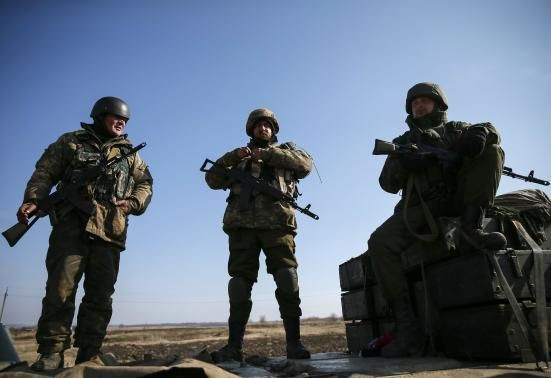House Votes In Favor Of US Lethal Aid For Ukraine, But Obama's Tipping Point Not Reached Yet

A resolution prompting the White House to offer military assistance to Ukraine passed in the House Tuesday, 348-48. The measure calls on President Barack Obama to give lethal aid to Ukraine as the conflict with pro-Russian rebels nears the one-year mark.
“We are at a turning point," House Foreign Affairs Committee Chairman Ed Royce, R-Calif., said when the resolution passed. "If we allow aggression against Ukraine to stand without us at least offering the Ukrainians the ability to defend themselves, we will signal to the world that our willingness to defend the post-World War II order is crumbling."
Despite Royce's dramatic words, Obama is opposed to giving weapons to Ukraine although the U.S. is providing nonlethal supplies to the Ukrainian armed forces. Obama, who shares the position with German Chancellor Angela Merkel, supports the view that giving Ukraine weapons will only lead to greater aggression from Russia and the conflict will worsen.
After receiving nonlethal military aid for Ukraine, including medical equipment and blankets, Ukrainian President Petro Poroshenko said in September, "One cannot win a war with blankets." Since then, his military has been defeated repeatedly by Russia-backed rebels, including in the fight for Donetsk International Airport and for the strategic city of Debaltseve, which was lost just days after a ceasefire came into force Feb. 15.
There is no doubt that the conflict, which has killed more 6,000 people and injured around 15,000, has slowed since the Minsk II ceasefire agreement -- but by no means is the ceasefire agreement being fully met. Gunfire is still a daily occurrence in the contested Donbas region and few of the political stipulations from the agreement have been discussed.
The problem, said lawmakers speaking in the House Monday, is Ukraine cannot match the same levels of firepower as the separatists, who are being assisted by Russia.
Former U.S. Ambassador to Ukraine Steven Pifer (1998 to 2000) said Obama will not commit to lethal aid as long as the Minsk II agreement is still in place and making a difference.
“If the agreement breaks down and the responsibility of that lies with the separatists and the Russians, then I think there would be a lot of pressure on him. Under those circumstances, there might be a different decision,” Pifer said.
The breakdown of the ceasefire would likely come if the port city of Mariupol was attacked by rebels, Pifer said.
“That would indicate that the separatists and the Russians do not intend to abide by the ceasefire and the West will draw the appropriate conclusions,” the former diplomat said. “But Mariupol is not just the tipping point for Obama. German foreign minister Steinmeier has basically said that if there was a Russian-separatist assault on Mariupol then ‘we the German people have to rethink the whole policy.’"
© Copyright IBTimes 2025. All rights reserved.






















